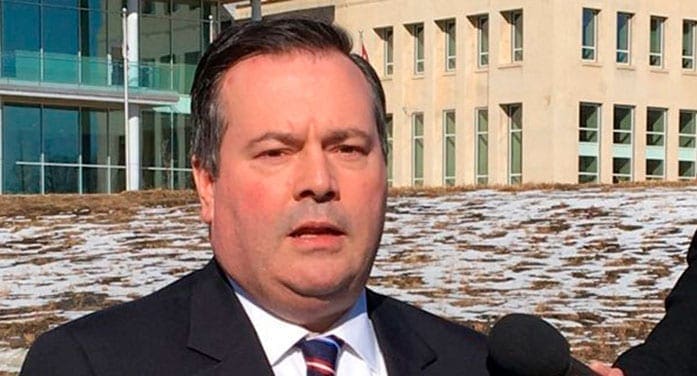 With the Alberta government steamrolling towards a $100-billion debt tab, things aren’t exactly rainbows and lollipops for taxpayers these days.
With the Alberta government steamrolling towards a $100-billion debt tab, things aren’t exactly rainbows and lollipops for taxpayers these days.
Fortunately, there are three ways MLAs can help taxpayers get ahead in the upcoming legislative session: increase government accountability, find savings at the top of the bureaucratic pyramid and reignite Alberta’s fight for fairness.
It’s been two years since Premier Jason Kenney was on the campaign trail promising “sweeping democratic reforms.” This promise included recall legislation to give Albertans the ability to hold our MLAs accountable by collecting signatures and, if we collect enough signatures, force a byelection.
Last February, the government again promised recall legislation and to extend it to local politicians.
The Democratic Accountability Committee is recommending a requirement to collect signatures of 40 percent of voters in the riding to force the recall byelection, similar to rules in British Columbia which has had recall legislation since 1995.
That’s a high hurdle for Albertans to hold their MLA accountable. The high threshold is a key reason B.C. has only had one successful recall campaign in two and a half decades. Kenney needs to pass recall legislation this session and he needs to make sure it will be effective.
Kenney also promised to expand the Alberta Taxpayer Protection Act to require a provincial referendum before MLAs can impose a provincial carbon tax.
“It’s the old idea of no taxation without representation,” said Kenney.
Kenney’s right. But why stop the idea of “no taxation without representation” at the carbon tax? Albertans should have the right to vote on all tax increases.
Kenney would immediately put Albertans’ minds at ease by confirming that his government will not consider a provincial sales tax, even after COVID-19.
On Feb. 25, Kenney is releasing his 2021 budget. It’s going to take time to balance the budget. But the government can immediately pass a law that requires politicians to meet annual budget targets. There should also be financial penalties to give politicians some extra motivation to reduce the deficit.
Another key issue in Alberta is the budding divide between government employees and those paying the growing tab, which has been exacerbated by the lockdowns.
While the private sector has been shedding jobs by the tens of thousands over the last year, the number of government jobs has increased. Canadian Taxpayers Federation analysis shows more than 15,000 government employees received a pay raise during lockdowns in 2020.
All MLAs should immediately take a 20 percent cut to show families and businesses they are willing to make the same sacrifice they’ve asked us to make. The cut should be extended to the many bureaucrats and government managers who are pulling in bigger paycheques than MLAs.
Then there’s Ottawa.
Prime Minister Justin Trudeau barely batted an eye when Washington pulled the plug on the Keystone XL pipeline. If it wasn’t clear before, it’s perfectly clear now that Trudeau isn’t going to hand Albertans a fair deal on a silver platter.
It’s time for Alberta to go all in on this October’s equalization referendum. Kenney should start recruiting other provinces to hold referendums of their own. British Columbia, Saskatchewan and Newfoundland and Labrador haven’t received a cent back from equalization over the last decade. Ontario hasn’t received any equalization for the last few years. These provinces are our natural allies in this fight.
Premiers in New Brunswick and Quebec have also acknowledged they need to rethink their relationships with equalization.
The last year has been a tough one for taxpayers. But there are wins to be had if Kenney goes back to his key promises to strengthen government accountability, clean up the budget mess and fight for fairness.
Franco Terrazzano is the Alberta Director of the Canadian Taxpayers Federation.
Franco is one of our contributors. Why aren’t you?
For interview requests, click here. You must be a Troy Media Marketplace media subscriber to access our Sourcebook.
The views, opinions and positions expressed by columnists and contributors are the author’s alone. They do not inherently or expressly reflect the views, opinions and/or positions of our publication.


